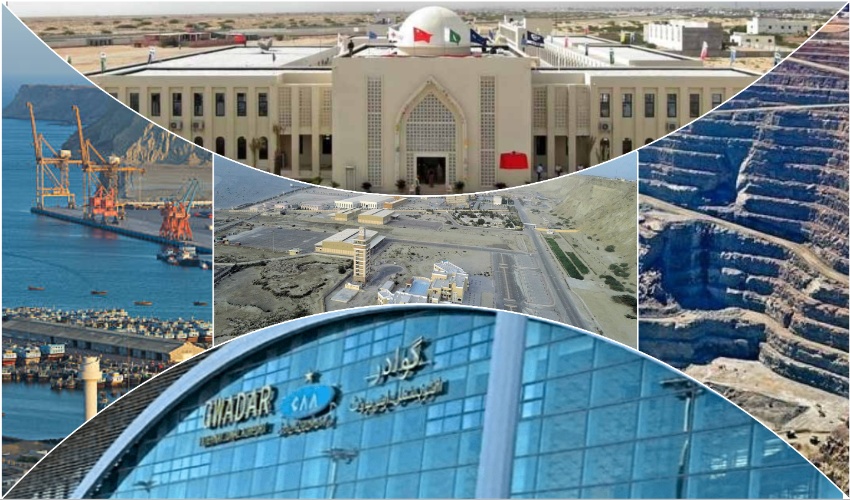As the world hurtles into the era of artificial intelligence (AI), Pakistan finds itself at a crossroads, grappling with the imperative to modernize its public sector amidst a landscape of entrenched challenges. While nascent efforts to integrate AI into governmental functions have begun, the nation's stride remains measured, hindered by a dearth of robust commitment from the authorities and a sluggish pace of technological advancement.
Pakistan's dalliance with AI mirrors a global trend, where nations are awakening to the vast potential this technology holds for transforming governance, public services, and citizen engagement. Yet, despite the promise, the journey toward AI-enabled governance in Pakistan has been marred by hurdles, necessitating a strategic overhaul of approach and commitment from all stakeholders.
The genesis of AI in governance traces back to the mid-20th century, with pioneering experiments like the ELIZA program, heralding a new era of technological mimicry of human behavior. Today, AI encompasses a spectrum of capabilities, from specialized task-oriented weak AI to the realm of strong AI, mirroring human intellect.
In the context of governance, AI offers a panacea for myriad challenges, ranging from enhancing efficiency in planning and research to bolstering cybersecurity and optimizing service delivery. Across the globe, governments have recognized AI's potential to streamline processes, improve policymaking, and augment public engagement, thereby elevating service quality across diverse sectors, including healthcare, law enforcement, and education.
Pakistan's tryst with AI
In Pakistan, the seeds of AI adoption have been sown, albeit tentatively. Initiatives by the Higher Education Commission have paved the way for AI's integration into higher education and research institutes, promising a cadre of technologically adept professionals. However, economic constraints, implementation timelines, and a dearth of skilled personnel pose formidable challenges to widespread adoption.
The economic and financial sectors have witnessed the nascent influence of AI, with models leveraging Artificial Neural Networks to enhance predictive accuracy. In healthcare, too, AI holds promise for elevating service quality, albeit amid apprehensions regarding data security and privacy.
The government's endeavors, epitomized by initiatives like "Vision 2025," underscore a commitment to digitalization and public-private partnerships in the IT sector. However, a glaring gap exists between policy rhetoric and on-ground implementation, with a palpable dearth of concrete strategies for AI deployment within public organizations.
Challenges on road to AI adoption
Pakistan's journey toward AI-enabled governance is fraught with multifaceted challenges, relegating the nation to the periphery of the global AI landscape. On the Government AI Readiness Index, Pakistan's ranking languishes at 92nd, underscoring the chasm between ambition and execution.
Ethical quandaries, bureaucratic inertia, and a palpable resistance to technological change compound the challenges, impeding the seamless integration of AI into public sector domains. Cybersecurity concerns loom large, amplifying anxieties surrounding data privacy and system vulnerabilities.
The absence of tailored AI policies, coupled with a paucity of experienced personnel, exacerbates implementation woes, rendering public organizations hesitant to embrace AI. The ossified bureaucratic structures further stymie progress, relegating Pakistan to the sidelines of global AI innovation.
Policy Imperatives and collaborative solutions
To unlock the transformative potential of AI in Pakistan's public sector, a concerted and collaborative effort is imperative. Legislative frameworks like Vision 2025 and Digital Pakistan Policy 2018 must be fortified with concrete strategies for AI integration, addressing the nuanced needs of diverse public organizations.
Financial constraints must be navigated through prudent resource allocation, with a focus on fostering a culture of innovation and technological agility. Capacity building initiatives, in tandem with robust cybersecurity measures, are indispensable for instilling confidence in AI systems and mitigating systemic risks.
Moreover, fostering partnerships with international counterparts can facilitate knowledge exchange and best practices, propelling Pakistan toward the vanguard of AI-enabled governance.
In conclusion, Pakistan stands at a pivotal juncture in its quest for AI-enabled governance. As the digital tide surges, the imperative to embrace AI grows ever more urgent, necessitating a paradigm shift in approach and commitment from all quarters.
By surmounting the myriad challenges, Pakistan can harness the transformative power of AI to revolutionize public services, governance, and the broader digital landscape. The path ahead is fraught with obstacles, yet imbued with immense promise—a promise that beckons Pakistan toward a future where technology serves as a catalyst for progress and prosperity.
The time to act is now. The future is digital, and Pakistan must seize the moment to shape its destiny in the AI era.
-----------------------------------------------------------------------------------------------------------------------------
The author is a seasoned digital media expert currently serving as head of digital media at SAMAA TV. With a PhD in Software Engineering, Siddique brings a wealth of expertise in crafting and executing dynamic digital media strategies and loves to write on IT, AI revolution, economy and security issues. His skills encompass digital media production, content writing, social media management, data analysis, and digital marketing. He can be reached at asim.siddique@samaa.tv



























